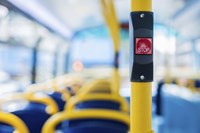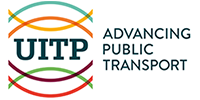
The International Association of Public Transport (UITP) has decided to sign the European Commission’s “Declaration of intent on promoting large-scale deployment of clean, alternatively fuelled buses in Europe”. Mandatory procurement targets of such technologies in a revised Clean Vehicles Directive would however not be supported.
The decision to sign the declaration was yesterday in UITP’s European Union Committee - which assembles public transport operators and authorities from the EU Member States. UITP and its members believe that alternatively fuelled and electric buses are the future and therefore support the evolution of the market.
However, they also emphasise that today’s Euro VI diesel buses are already a clean technology and that the public transport sector wishes to remain free in its choice of technology – which is in line with UITP’s position towards a soon-to-be-revised Clean Vehicles Directive. UITP regrets that the Commission’s effort to decarbonise transport focuses mostly at technologies and does not include modal shift ambitions.
“There is a large interest in the public transport sector to test and operate alternatively fuelled and electric buses when they are available, reliable and affordable. This is why UITP supports the Commission’s declaration, which is a voluntary instrument to support the market. We welcome that the Commission is looking at the bus system as a whole and is especially mindful to the infrastructure issues linked to the operation of new technologies. The Commission also understood that financial support is important as many alternatively fuelled technologies still have a higher price. At the same time, we oppose the idea of mandatory procurement targets for local authorities or operators in a soon-to-be-revised Clean Vehicles Directive. For public transport operators, such obligations would be risky, costly, create unnecessary additional administrative burden and make public transport more expensive. Specific targets at city level for air quality and noise levels, as well as financial support schemes at regional, national or EU level, on the other hand, have proven to be very effective to support modal shift, clean bus deployment and a renewal of fleets. The Commission’s focus should therefore be oriented in this direction. It should be taken into account that public transport is always a clean and efficient way of travelling – also when it is delivered with modern diesel or biodiesel buses,” says Ulrich Weber, President of UITP’s EU Committee.
“While UITP actively supports the development and market entry of new bus technologies through projects such as ZeEUS – the results of which have inspired the Annex to the Declaration – UITP’s policy focus has at the same time been on renewing the oldest part of the bus fleet. Renewing the oldest bus by any modern one – including Euro VI diesel – has a fast and cost-efficient effect on the emissions. It is important to be mindful of the differences that exist across Europe: while a number of cities intend to electrify transport within the next years, others will still rely exclusively or to a large extend on conventional buses and need more time for the shift to alternative fuels,” adds Thomas Avanzata, Director of UITP’s EU Department.
Public transport authorities and operators have been providing clean transport via electro-mobility for centuries in the form of trams, metros and railways. The EU’s procurement directives already allow considering environmental aspects when purchasing vehicles. At the same time, diesel buses only contribute a small fraction of the total emissions in cities – while most emissions stem from cars. In rural areas and for long-distance mobility, biofuels are another environmental-friendly alternative, which should be recognised by the European Union and reflected in its policies when it comes to taxes and production capacities. UITP expects that the prices of buses will evolve naturally as purchase numbers increase.
UITP intends to sign the Declaration at its upcoming Bus Conference in Kortrijk
About UITP
 As a passionate champion of sustainable urban mobility, UITP is internationally recognised for its work in advancing the development of this critical policy agenda. UITP has a long history to its name, and is the only worldwide network to bring together all public transport stakeholders and all sustainable transport modes.
As a passionate champion of sustainable urban mobility, UITP is internationally recognised for its work in advancing the development of this critical policy agenda. UITP has a long history to its name, and is the only worldwide network to bring together all public transport stakeholders and all sustainable transport modes.




Comments
There are no comments yet for this item
Join the discussion